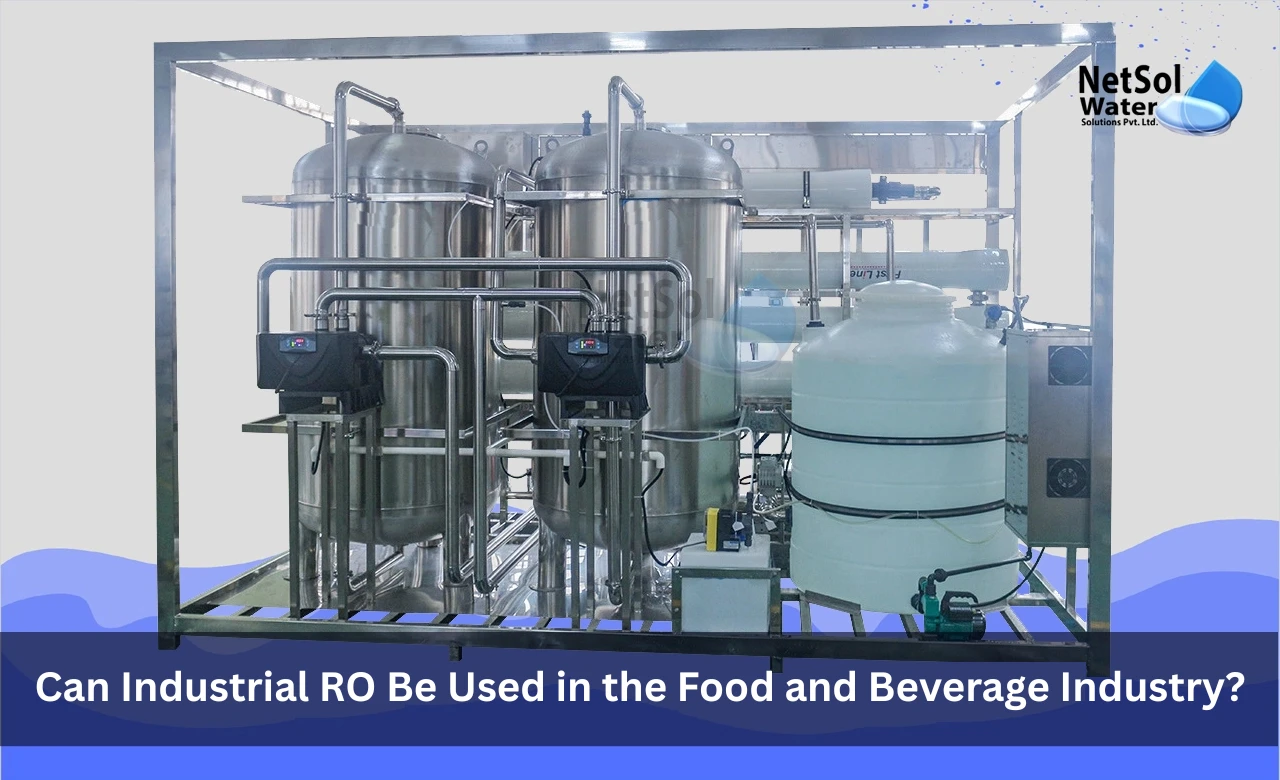Can Industrial RO Be Used in the Food and Beverage Industry?
Water quality is one of the most important parts of the food and beverage industry. Clean, pure, and safe water is required to produce high-quality products that meet health and safety standards. Industrial RO plants have become an important part of many industries, but can industrial RO be used in food and beverage industry or not? The answer is yes, and in this blog, we explain why Industrial RO is highly appropriate to this industry and why it is beneficial to manufacturers.
Why Water Quality Matters in Food and Beverage Production
Water is a main component in various food and beverage products, for example, juices, soft drinks, milk and their derivatives, sauces and processed foods. It is an important ingredient and also used as a cleaner, a processing agent and to keep things cool. Any pollutants or impurities detected in the water could change the product’s color, taste and risk to those eating it.
Therefore, food and beverage manufacturers ensure that their water is free from bacteria, chemicals and dissolved solids. High standards must be used to treat the water to keep the products safe for people to consume.
Application of Industrial RO in the Food and Beverage Industry
Industrial RO used in the food and beverage industry guarantees the consistent cleaning of water. Reverse Osmosis removes impurities from water by passing water through a thin film that separates dissolved solids, salts, bacteria, viruses and other material. Making the water pure guarantees it is safe for use in food making.
Industrial RO is used in the food and beverage industry for one of the following applications:
Process Water Purification
RO systems provide clean water used in various production processes. The water is free from impurities that may alter the taste, color, or safety of food and beverages.
Sanitizing and Cleaning Water
Clean water is used for cleaning equipment, tanks, and pipes to maintain levels of hygiene. Industrial RO water does not leave behind any mineral deposits or impurities that may affect product quality or safety.
Ingredient Water
In drinks such as soft drinks, juices and bottled water, purified water from an RO plant is required. It makes the food healthier and lasts longer.
Steam Generation
Steam is also used in some food plants for cooking and to sterilize products. Since RO water controls scale, it helps maintain a more efficient steam boiler and decreases its operating expenses.
Benefits of Industrial RO Application in Food and Beverage Sector
Industrial RO application in the food and beverage sector has several benefits:
High Degrees of Purification: Industrial RO plants remove nearly all dissolved solids, bacteria, viruses, and organic contaminants, producing water of the highest quality level required in food and beverage manufacturing.
Uniform Water Quality: RO units provide consistent and reliable water quality, which is required for product uniformity and regulatory compliance.
Chemical Reduction: By removing naturally occurring impurities, industrial RO reduces the consumption of chemical additives or disinfectants, and therefore production process becomes less harmful to human health and friendly to the environment.
Energy and Cost Efficiency: Although RO plants are energy intensive, they are cost-saving in the long run by reducing equipment wear and minimizing cleaning and maintenance requirements.
Industry Standards and Regulations
The food and beverage industry is controlled with stringent water quality standards, such as the Food and Drug Administration (FDA) standards and food safety regulatory agencies. Industrial RO systems can be designed and run according to these control requirements, and the water utilized will be safe, clean, and free of toxic substances.
Challenges and Considerations
While industrial RO used in the food and beverage industry offers many benefits, there are some challenges to consider:
Pre-treatment is Required: Feed water must be pretreated in order to protect RO membranes from fouling and scaling.
Maintenance: Frequent maintenance and supervision are required for steady performance.
Wastewater Management: RO plants produce wastewater that must be managed wisely.
Imperative installation, operation, and design will effectively address these issues.
Conclusion
Industrial RO used in the food and beverage industry is not only possible but highly beneficial It provides quality water that is highly pure and safe for use, allowing manufacturers to produce safe, consistent, and quality products.
Applied to ingredient water, sanitizing, or generating steam, industrial RO plants are a worthwhile investment for the food and beverage market. A properly pretreated and maintained RO plant will deliver long-term profitability as well as industry regulatory compliance.
If you are in the food and beverage industry and want to improve the quality of water, an industrial RO plant could be one of the smartest things you can do for your manufacturing process.
Do you need an advice or assistance on selecting the best water and waste water treatment unit? We have solutions for all your problems!
Let us know your problem, our experts will make sure that it goes away.
For an assistance or related query,
Call on +91-9650608473
Or write us at enquiry@netsolwater.com

